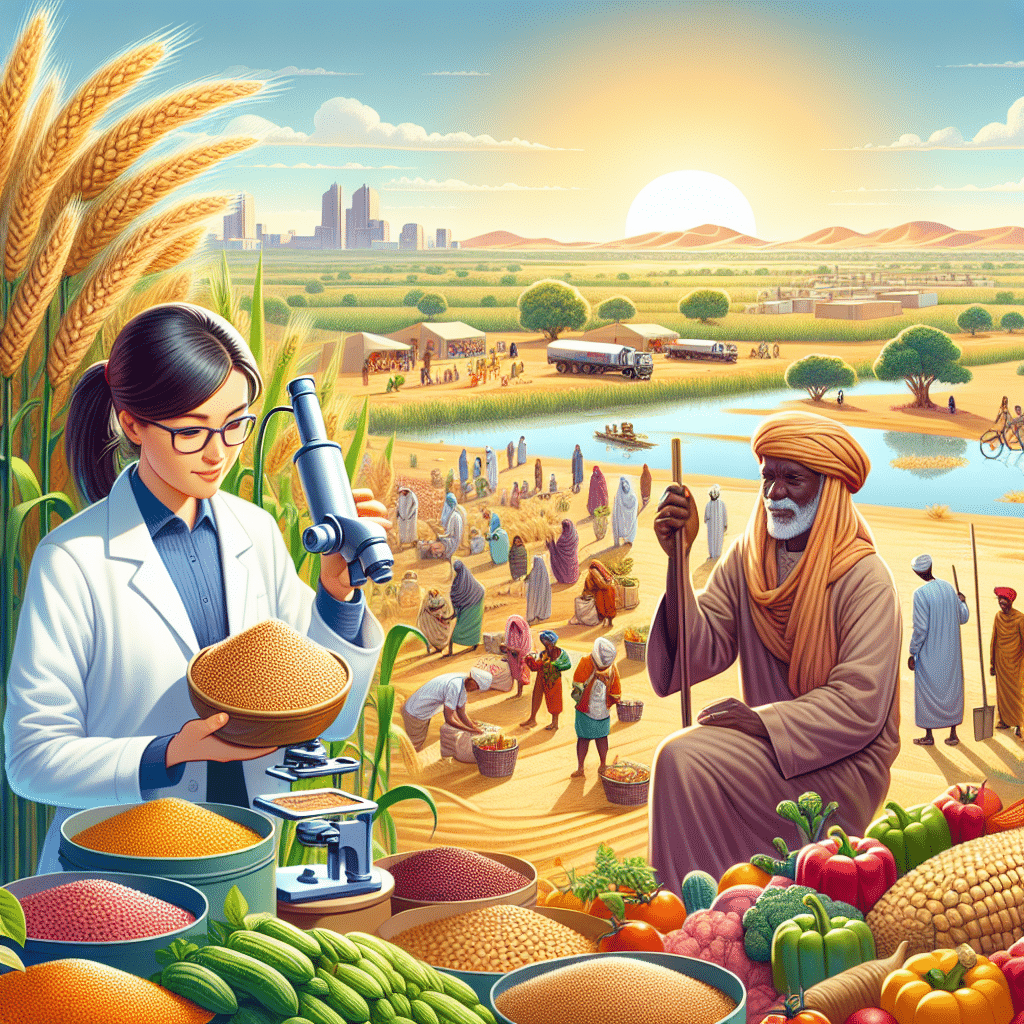World Food Day – Improving Food Security and Nutrition in Niger
-
Table of Contents
- World Food Day: Enhancing Food Security and Nutrition in Niger
- The State of Food Security and Nutrition in Niger
- Efforts to Improve Food Security and Nutrition
- Case Studies and Success Stories
- Challenges and Recommendations
- Conclusion: Key Takeaways for a Food-Secure Niger
- ETChem’s Contribution to Nutrition in Niger
World Food Day: Enhancing Food Security and Nutrition in Niger

World Food Day is a global event dedicated to tackling hunger and improving nutrition. In Niger, a country faced with numerous challenges including climate change, political instability, and economic constraints, World Food Day serves as a reminder of the importance of food security and nutrition. This article explores the current state of food security and nutrition in Niger and the efforts being made to improve these critical areas.
The State of Food Security and Nutrition in Niger
Niger, a landlocked country in West Africa, has a population that is heavily reliant on agriculture for their livelihoods. However, the country’s food security is threatened by a combination of factors:
- Climate Variability: Frequent droughts and floods have a significant impact on crop yields and livestock.
- Economic Challenges: High levels of poverty limit the ability of families to purchase sufficient nutritious food.
- Political Instability: Conflict in neighboring countries has led to an influx of refugees and increased food demand.
- Health Issues: High rates of diseases such as malaria and HIV/AIDS affect the nutritional status of the population.
According to the World Food Programme (WFP), Niger faces a crisis level of food insecurity, with millions of people at risk of hunger. Malnutrition rates, particularly among children, are alarmingly high, with stunting and wasting being prevalent issues.
Efforts to Improve Food Security and Nutrition
Several initiatives have been launched to address food security and nutrition in Niger. These include:
- Government Programs: The Nigerien government has implemented strategies such as the 3N Initiative (“Nigeriens Nourishing Nigeriens”) to promote self-sufficiency in food production.
- International Aid: Organizations like the WFP and the Food and Agriculture Organization (FAO) provide support through food assistance and agricultural development projects.
- Community-Based Approaches: Local NGOs are working to educate communities on nutrition and sustainable farming practices.
- Research and Development: Partnerships with international research institutions aim to develop drought-resistant crops and improve agricultural productivity.
These efforts are crucial in building resilience against food insecurity and improving the nutritional status of the population.
Case Studies and Success Stories
There are several examples of successful interventions in Niger that have made a positive impact:
- Integrated Farming Systems: Projects that combine crop production with livestock rearing and agroforestry have increased food availability and diversified diets.
- Nutrition Education Programs: Teaching mothers about the importance of breastfeeding and balanced diets has led to improved child nutrition.
- Market Access Initiatives: Improving rural farmers’ access to markets has enabled them to sell their produce and increase their incomes.
These case studies demonstrate that with targeted interventions, it is possible to make significant strides in combating hunger and malnutrition in Niger.
Challenges and Recommendations
Despite the progress made, there are still challenges that need to be addressed to ensure sustainable food security and nutrition in Niger:
- Scaling Up Successful Interventions: There is a need to expand successful programs to reach more people across the country.
- Strengthening Infrastructure: Improving roads, storage facilities, and irrigation systems will enhance agricultural productivity and market access.
- Enhancing Resilience to Climate Change: Developing strategies to cope with climate variability is essential for the sustainability of food systems.
- Increasing Investment: More funding is required to support research, technology adoption, and capacity building.
Addressing these challenges will require concerted efforts from the government, international community, and local stakeholders.
Conclusion: Key Takeaways for a Food-Secure Niger
World Food Day serves as a catalyst for change, bringing attention to the critical need for food security and nutrition in Niger. The key takeaways from this article highlight the importance of integrated approaches, community involvement, and resilience-building measures. By continuing to support and expand these initiatives, Niger can move towards a future where all its citizens have access to sufficient, safe, and nutritious food.
ETChem’s Contribution to Nutrition in Niger
ETChem’s protein products could play a significant role in improving nutrition in Niger. Their high-quality collagen products, including marine, fish, bovine, and chicken collagen, offer a range of health benefits that are essential for a population facing nutritional challenges. These products can be incorporated into food aid programs or used to fortify local food products, thereby enhancing the overall nutritional value of diets in Niger.
About ETChem:
ETChem, a reputable Chinese Collagen factory manufacturer and supplier, is renowned for producing, stocking, exporting, and delivering the highest quality collagens. They include marine collagen, fish collagen, bovine collagen, chicken collagen, type I collagen, type II collagen and type III collagen etc. Their offerings, characterized by a neutral taste, instant solubility attributes, cater to a diverse range of industries. They serve nutraceutical, pharmaceutical, cosmeceutical, veterinary, as well as food and beverage finished product distributors, traders, and manufacturers across Europe, USA, Canada, Australia, Thailand, Japan, Korea, Brazil, and Chile, among others.
ETChem specialization includes exporting and delivering tailor-made collagen powder and finished collagen nutritional supplements. Their extensive product range covers sectors like Food and Beverage, Sports Nutrition, Weight Management, Dietary Supplements, Health and Wellness Products, ensuring comprehensive solutions to meet all your protein needs.
As a trusted company by leading global food and beverage brands and Fortune 500 companies, ETChem reinforces China’s reputation in the global arena. For more information or to sample their products, please contact them and email karen(at)et-chem.com today.




